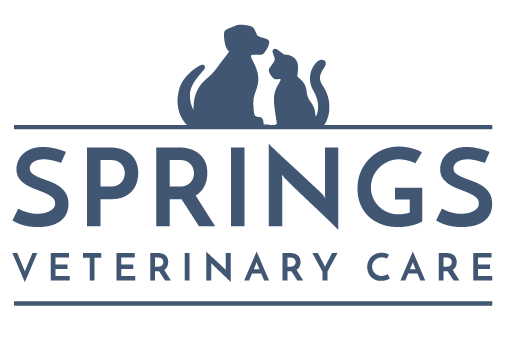We all wish our best furry friends will live forever (or at least as long as we do). However, dogs and cats age more quickly than humans, and by the age of 7, they’re considered middle-aged. When your pet starts to come up on AARP age, their health needs change. But with proper healthcare, diet, and exercise, there’s no reason your kitty or pup can’t reach the golden years – and maybe even reach the triple-digits!
Robust healthcare for senior pets
Geriatric pets – those older than age 7, or age 6 for dogs over 50 pounds – should receive:
1. Twice yearly wellness exams.
Wellness visits include a thorough evaluation of your pet’s medical history, health risk screenings, senior pet health education, and referrals to specialty care (if needed). When we examine old pets, we look for common issues such as infected teeth, cataracts, heart murmurs, or tumors.
Regular physical exams are an easy way to catch developing problems in your aging pet, and early diagnosis is critical to preventing and managing diseases including, but not limited to, dental disease, obesity, osteoarthritis, renal disease, and diabetes.
2. A health risk screen
As part of your senior pet’s robust healthcare regime, your veterinarian may suggest health risk screenings. There are a lot of critical values that need to be checked, including blood sugar, thyroid hormone, and kidney function. Fortunately, there are easy tests to give us important answers, including bloodwork and urinalysis.
“Things like kidney and liver disease, diabetes, and joint disease can all be found on annual physical exams or lab work,” says Dr. Amanda Smith. “They can also be treated in order to help improve and maintain the quality of life for the pet.”
Behavior changes that may indicate something is wrong
While it’s true that cats and dogs are prone to many of the same conditions humans are, unlike humans, your dog or cat can’t say, “I better get this sore knee checked out,” or “This chest pain warrants a doctor visit.” Your pet depends on your bringing him to the vet to figure that out – even when you don’t see something obviously wrong.
You might notice a change in habits or a new behavior that’s a sign of a problem. A dog that won’t jump on the bed or a cat who isn’t grooming properly may have an underlying physical problem.
- Increased reaction to sounds
- Increased vocalization
- Confusion or disorientation
- Increased irritability or aggression
- Decreased response to commands
- Incontinence
- Decreased self-grooming
- Change in sleep patterns
Behaviors that indicate advanced problems include decreased appetite or thirst, increased or decreased urination, poor coat quality, vomiting, sore mouth, blood in urine, weakness, coughing or respiratory issues, and decreased exercise tolerance. If your senior dog or cat experiences any of these problems, bring him to Springs Veterinary Care right away, as these are signs of kidney disease, urinary tract disease, and heart disease, among other things.
Bottom line, dogs and cats are very much like humans: the older they get, the more health issues they may have. It’s always important to bring your dog or cat to the vet for annual or bi-annual exams, but as they age, it becomes even more vital.
Why Springs Veterinary Care is the best choice for your aging pets
“Senior pet care is something we are very passionate about at Springs Veterinary Care,” says Dr. Smith. “This is the time of life where we can really make an impact and improve the quality of life for so many. It is so important to have a relationship with a facility you know and trust and to get your pet in for their bi-annual visits to ensure that we are able to diagnose, treat, and prevent disease and help keep your pet healthy as long as possible.”
At Springs Veterinary Care, we care about your pet from the time they are puppies or kittens, until the time comes to say goodbye, and we make the process as gentle as possible.
“Senior care continues through to the end of life, where veterinarians and nurses are able to help guide pet parents through one of the toughest decisions they will make in their pets life,” says Dr. Smith. “While losing a pet is often a traumatic time in a pet owner’s life, at Springs Veterinary Care, we take pride in knowing that we can help our pet parents make a peaceful transition for their pet.”
Whether you have a puppy or kitten, a middle-aged dog or cat, or a pup or kitty with some gray in the muzzle, we have a plan to keep your furry friend in the best possible health! Check out all of our our Love My Pet plans here!
